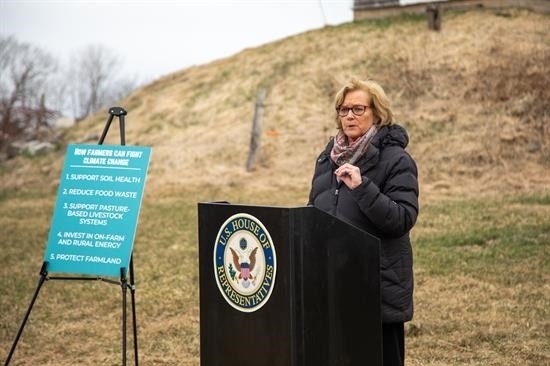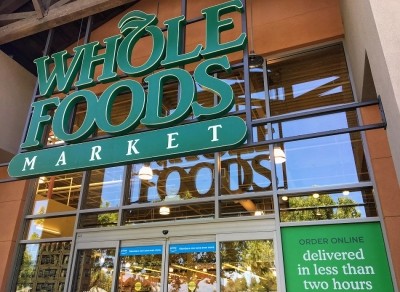Farmers must be part of climate change solution, not stigmatized as problem, Rep. Pingree argues

“We are at an interesting moment in time as I think we are in the middle of this climate crisis and we are all struggling with how to move forward and find solutions,” Pingree told attendees at Foreign Policy’s inaugural Food Forever Food Solutions Summit in Washington, DC, last week.
“The first instinct of a lot of people is to say we are all going to eat less meat and plant trees everywhere, but that is not a solution to what we have to deal with. Neither is stigmatizing farmers, even though agriculture plays a huge role in the issues around climate change, instead of saying how do we engage farmers in this really important dialogue and then be part of what our solutions are,” she explained.
She argued that “farmers are naturally predisposed to taking good care of the land and making it better for the next generation,” but they don’t always have all the resources they need to execute best practices that will help reduce climate change.
“We need to make sure that our agriculture policies at the [US Department of Agriculture] and at the state level around the country are designed in a way that support and reward farmers” for their efforts, she said.
For example, Pingree urges USDA to explore carbon markets for agriculture and develop common, science-based methodologies for carbon markets that would allow farmers to be paid for their efforts to sequester carbon by mandatory and voluntary purchases by others of carbon offsets.
Her office also is putting the finishing touches on a legislative proposal that would acknowledge that farmers “are on the frontlines of climate change and are an integral part of any plan to mitigate and adapt the effects of climate change,” according to a release from her team.
She told attendees at the Food Forever Summit that the legislation includes five pillars. The first is to prioritize soil health initiatives, the second would protect farmland and improve farm viability so that farmland is not turned into housing developments or other non-environmentally friendly uses, the third is to reduce food waste, the fourth is support pasture-based livestock systems and the fifth recognizes and supports on-farm and rural energy initiatives, such as the use wind and solar power or digesters.
Teamwork is imperative
While many of her efforts are focused on her home state of Maine and the US, she explained that the issue of climate change is a global one and therefore farmers and stakeholders around the world must act together to mitigate its effects and progression.
“It is nuts that we are not deeply engaged with all the countries of the world trying to solve this as a unit because the one thing that is true of climate change is that it doesn’t matter how well we do it fixing the problem in the state of Maine – we can be a net zero state and sequester carbon all over the place – but unless the entire world is participating together on this … it is going to continue to just be worse and worse,” she said.
Beyond supporting farmers at a legislative level, Pingree argued that farmers need ways to learn from each other because they commonly note that there isn’t enough technical assistance from the government to achieve desired outcomes. On this note, she advocated for and won the inclusion of $10 million in the 2018 Farm Bill for the Farming Opportunities Training and Outreach Program, which coordinates USDA training and outreach to beginning, veteran and socially disadvantaged farmers.
The duel problems of food waste and insecurity
Tangled up in climate change and the impact on and by farmers is the issue of food waste and food insecurity, Pingree noted.
She explained that over-production of food contributes to climate change, and one way to reduce that is to ensure food is not wasted.
“I am about to reintroduce the Food Recovery Act, as I have before, and it is widely supported,” despite stalling in the House after being introduced in July 2017 to several key House committees, she said. The bill would authorize grants and loans for activities related to raising awareness about wasted food and food recovery efforts at schools, farms and elsewhere.
She also introduced along with Rep. Dan Newhouse (R-Wash.) in August 2019 the Date Labeling Act, which is designed to end consumer confusion about food date labeling so as to reduce the risk they throw away safe and nutritious food.
As these efforts show, addressing climate change and related issues of food waste and insecurity are multi-faceted and will take stakeholders across sectors to thoughtfully and meaningfully addressed, Pingree concluded.
















